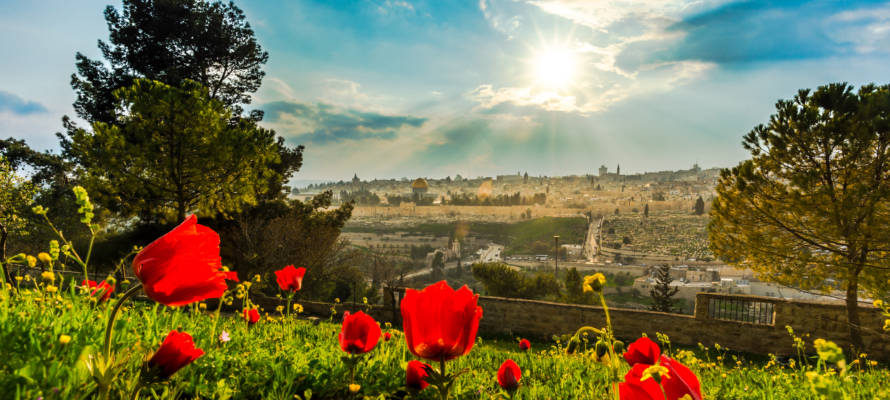The Land of Israel is a wondrous place, with features that delight the senses and a spiritual core that feeds the soul!
By: Rabbi Ari Enkin, Rabbinic Director, United with Israel
This week’s Torah portion is “Eikev” (Deuteronomy 7:12–11:25) and with all its praises of the land of Israel, it is certainly a United with Israel favorite!
Let’s take a look at one of these “pro-Israel” verses: “It is a land of wheat, barley, grapes, figs and pomegranates; a land of oil producing olives and honey producing dates.” (Deut. 8:8)
The obvious question is asked: why is the word “land” mentioned twice in the verse?
It is explained that there are two types of love for the Land of Israel. One love for the land is aroused by all the spiritual benefits of the land. Many people value the land of Israel for its spiritual qualities. For example, there are many mitzvot of the Torah that can only be fulfilled in the Land of Israel–hundreds, in fact.
Indeed, we are told that Moses desired so badly to enter the land of Israel not merely for its beauty and great hummus, but more importantly, in order to be able to perform mitzvot that he was never able to perform since he had never been in the Land of Israel. This is the first type of love for the Land of Israel: a love based on the land’s spiritual benefits and opportunities.
The other love for the land of Israel, of course, is a love for all its material benefits: great views, great food, great people, not to mention the beaches, the hills, the valleys, the desserts, the snow, and the snorkeling. This can be summed up as a desire to live in the Jewish homeland, with the list of reasons “why” nearly endless.
With that explanation, we can return to the verse in question. Each time the word “land” appears, it is followed by a list of produce, fruits, for which the Land of Israel is praised and with which it is associated. We are taught that each appearance of “land” along with its accompanying list of fruits represents one of the types of love for the land that we just mentioned.
The first appearance of “land” and its list of produce, which is a longer list than the second, represents those who love the Land for its spiritual benefits. The five fruits and grains correspond to the five books of the Torah. Our spiritual connection to the Land of Israel, of course, is completely based on the Torah. So too, our right to the Land of Israel is based solely on the Torah.
The second “land” and its list, which includes olives and oil (symbols of knowledge) and honey dates (the symbol of material satisfaction). These represent becoming immersed in and enjoying all the material benefits that living in this amazing country has to offer, such as education, high tech advancement, defense, the great hummus, and the like.
We see from here, that although it is ideal to want to visit and live in Israel for its spiritual benefits, those who, for whatever reasons, ignore the spiritual benefits and focus only on the material benefits, have a place here as well. They too are included in the “landscape” of the Land of Israel, the Holy Land, the only land of the Jewish people.
For more insights by Rabbi Enkin on this week’s Torah portion, click on the links below:
https://unitedwithisrael.org/living-torah-dont-just-count-your-blessings-say-them/
https://unitedwithisrael.org/the-land-of-israel-god-watches-over-it/
https://unitedwithisrael.org/living-torah-only-under-gods-watch-does-israel-survive-and-thrive/
https://unitedwithisrael.org/living-torah-the-land-of-israel-belongs-to-us/
https://unitedwithisrael.org/living-torah-modern-day-manna/
